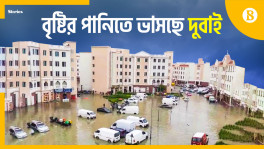What 631 cities tell us about the future
A record number of cities submitted proposals to Bloomberg Philanthropies’ Mayors Challenge this year. Their ideas show where urban innovation is headed

When Bloomberg Philanthropies earlier this year challenged mayors from around the world to put forward their best ideas for bouncing back from the pandemic, the response was overwhelming: 631 cities from 99 countries submitted ideas, more than in any other of our Mayors Challenge competitions.
Next week, we'll reveal our Champion Cities, representing the 50 boldest urban innovations to emerge from one of the worst-ever years. These standout cities and their solutions — selected by a panel of global experts — will then go on to compete for one of 15 $1 million prizes.
But before we announce the top 50, it's worth reflecting on the stunning diversity of ideas and approaches in those 631 applications, half of which came from cities in developing and emerging nations. Viewed as a whole, these entries represent the world's clearest picture of city priorities emerging from the Covid-19 pandemic — where cities are in terms of their continuing response and recovery, where they want to go, and how they hope to get there. They're a global action plan for assuring that we don't flatten the curve on urban innovation when the crisis fades.
In terms of the issues cities are addressing, it should come as no surprise that Health and Well-Being rose to the top. More than half the cities (337) put forward ideas in this area. A close second was Economic Recovery and Inclusive Growth (327), followed by Equality and Good Governance (226) and Climate and Environment (163). At a more granular level, specific problems cities seek to address include mental health (57 applications), unemployment (38), waste (34), food security (32), public space (26), education (24) and the digital divide (23).
Important trends also emerged by geography. For example, in Africa, where urban populations are projected to grow faster than anywhere else in the world, one-third of the applications relate to shoring up basic infrastructure. By contrast, in Europe and North America, social inclusion is the predominant theme. That's especially true in the US, where cities are reckoning with a legacy of racial injustice: 62% of US applications address different facets of this problem, such as building Black wealth. By contrast, in our last Mayors Challenge, in 2018, only 4% of US applicant cities sought to address racial injustice.
The Mayors Challenge is about more than big ideas, however. It's also about deepening the ways city leaders think about problem solving, strengthening the capabilities they bring to it and lifting their ambitions to tackle big problems. This is where this year's applications get even more interesting. They're like an EKG measuring the heartbeat of urban innovation as we prepare for a post-Covid world.
To that end, there are four broad themes in this year's entries.
First, cities are taking actions that go beyond their traditional scope of power and responsibilities. When national governments failed in their pandemic response, local leaders stepped up in ways they'd never before imagined to meet residents' needs for food, shelter, internet access and more. Now cities want to scale these programs. For example, Bogotá, Colombia, has big plans to support the women who are doing the vast majority of the caregiving during the pandemic. Da Nang, Vietnam, launched its own fiscal stimulus package to get the local economy going. And Cape Town, South Africa, hopes to expand a new network of soup kitchens into a permanent part of a more ambitious fight against hunger.
Second, cities are putting a huge emphasis on bringing residents into problem-solving. Nearly half of the applications cited public engagement, co-design and consultation as critical building blocks to their project's success. They're also looking to reverse a decline in public trust in government that was underway long before last year and has only accelerated since. New Orleans, for example, wants to put a new focus on residents' interactions with city government—key "moments that matter" that can build trust if they go well or blow up trust if they don't. And in Calgary, Canada, city leaders want to co-create a new supportive housing strategy with the local indigenous community.
Third, we're seeing cities approach technology in more sophisticated ways. In previous Mayors Challenges, cities sometimes took a "tech-first" approach, expecting smartphone apps, for example, to solve their problems. This time, they're taking more of a "tech-as-needed" approach, layering in the latest tools only when they might advance broader goals. In the Netherlands, for example, Rotterdam has been working for some time to boost jobs for vulnerable residents by putting hiring requirements on employers the city does business with; now, city leaders want to see if using digital tokens to create a marketplace to monetize social impact could advance that goal by giving companies another incentive.
The final theme is about how cities are coming up with ideas. Two-thirds of the entries represent adaptations of existing ideas — as opposed to attempts to invent something brand new. That's the right instinct during a fast-moving crisis, as Nesta's Charles Leadbeater observed while comparing Britain's responses to World War II versus Covid-19. "The most effective approach to innovation in a crisis," he wrote, "is to repurpose what there is rather than invent it from scratch."
Akron, Ohio, embraced this approach in its proposal to launch 200 new Black-owned businesses, borrowing the "medical rounds" model of how we educate doctors and applying it to mentoring entrepreneurs. And Lusaka, Zambia, proposed building on a small program that turns waste into energy to also produce fertilizer for farming and alcohol for hand sanitizer.
That's the kind of pragmatic yet creative thinking that's propelled city hall innovations for the past 15 months and, as you'll see after next week's announcement of our 50 Champion Cities, it's exactly how city leaders are prepared to continue leading for years to come.
James Anderson is head of government innovation programs at Bloomberg Philanthropies. Bloomberg LP is the parent company of CityLab.
Disclaimer: This article first appeared on Bloomberg, and is published by special syndication arrangement.


 Keep updated, follow The Business Standard's Google news channel
Keep updated, follow The Business Standard's Google news channel
















